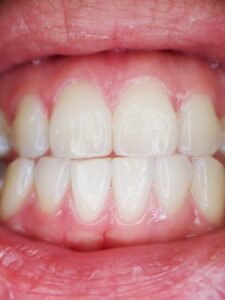An In-Depth Look into Bleeding Gums & How to Combat Them

Bleeding gums, otherwise known as gingival bleeding, is a common problem that may occur occasionally or more frequently, depending on the individual’s overall oral health and hygiene. In either case, it is important to get to the root of the problem in order to prevent it from becoming a chronic condition. This article will provide in-depth detail on the causes of bleeding gums and the best treatment options for them.
The first cause of gingival bleeding is poor oral hygiene. When food and bacteria build up in the mouth, the gums can become inflamed, making them susceptible to bleeding. Without regular brushing and flossing, plaque can begin to form on the teeth and gums, leading to gum disease and contributing to bleeding. It is also important to maintain regular dental visits to ensure your teeth and gums stay healthy.
A poor diet that is high in sugar and carbohydrates can also cause gingival bleeding. Sugary and starchy foods produce bacteria and an environment in the mouth that can trigger bleeding gums. Additionally, certain medications such as some blood thinners, vitamin K deficiency, and other vitamin deficiencies may also contribute to gingival bleeding. Stress, puberty, and hormonal changes are also common causes of bleeding gums.
For treatment, it is important to first determine the underlying cause of the bleeding. If poor oral hygiene is to blame, adjusting your oral hygiene routine can help reduce symptoms. This includes brushing for two minutes twice a day, flossing once daily, and using a toothpaste best suited for you each time. A professional dental cleaning to remove plaque and tartar build up may also be recommended.
If diet is the main cause, reducing sugary and starchy foods as well as reducing stress can help to improve gum health and reduce bleeding. For medications that are causing gingival bleeding, talk with your doctor or dentist about altering your medication or using an alternative treatment option.
In some cases, a medication specifically designed to reduce gum inflammation, such as a topical antiseptic, can be prescribed. It is important to follow the instructions for the medication closely and to speak with the doctor about any side effects before beginning the treatment.
In summary, bleeding gums are a common problem that can be caused by poor oral hygiene, a poor diet, hormonal changes, certain medications, and other factors. It is important to determine the underlying cause of the bleeding before beginning treatment. Treatment options may include improving your oral hygiene routine, reducing stress, eating a healthier diet, and possibly taking medications to reduce inflammation. Consulting your doctor or dentist about the best course of treatment for you is important to ensure the best care and a speedy recovery.

Comments